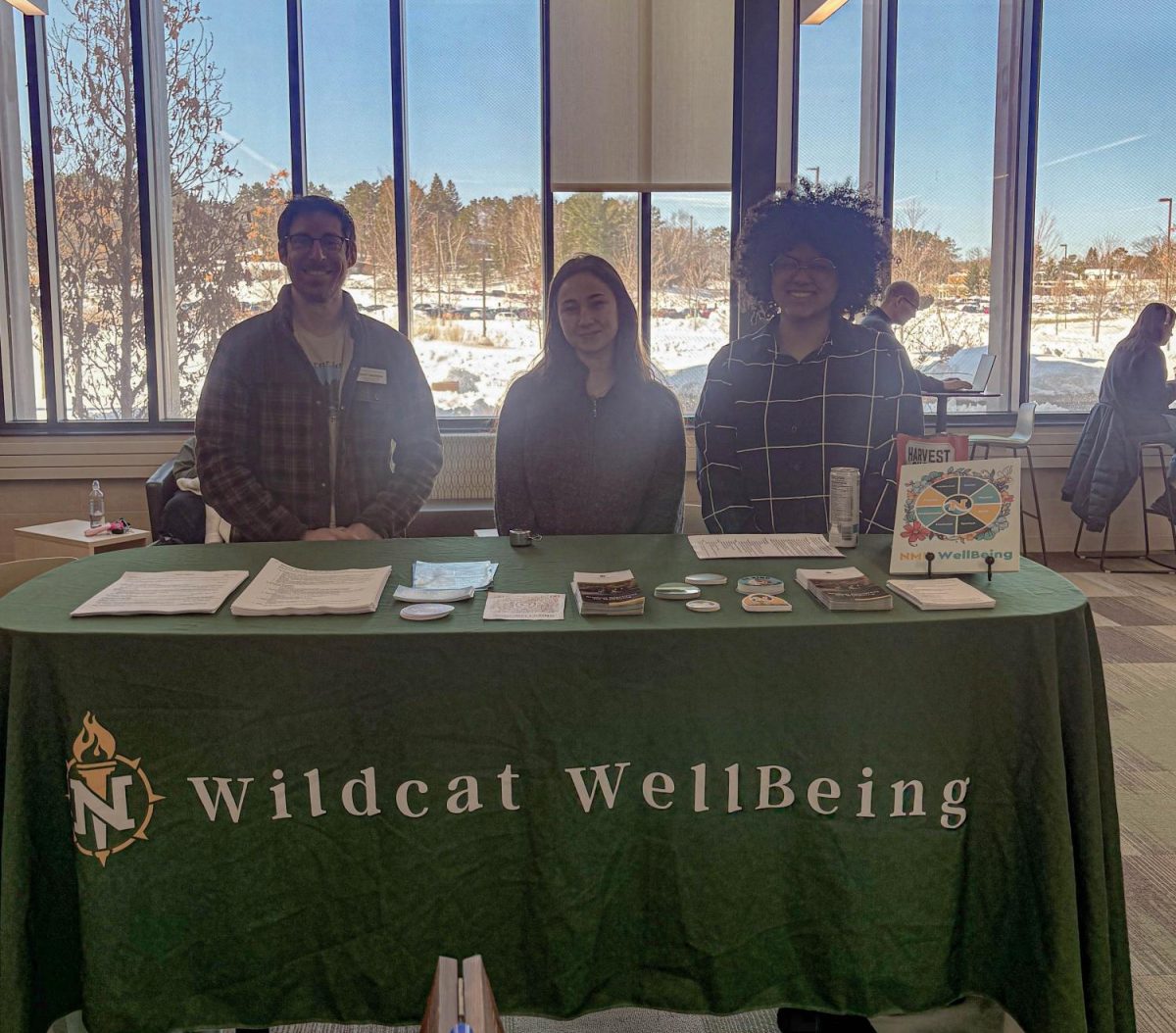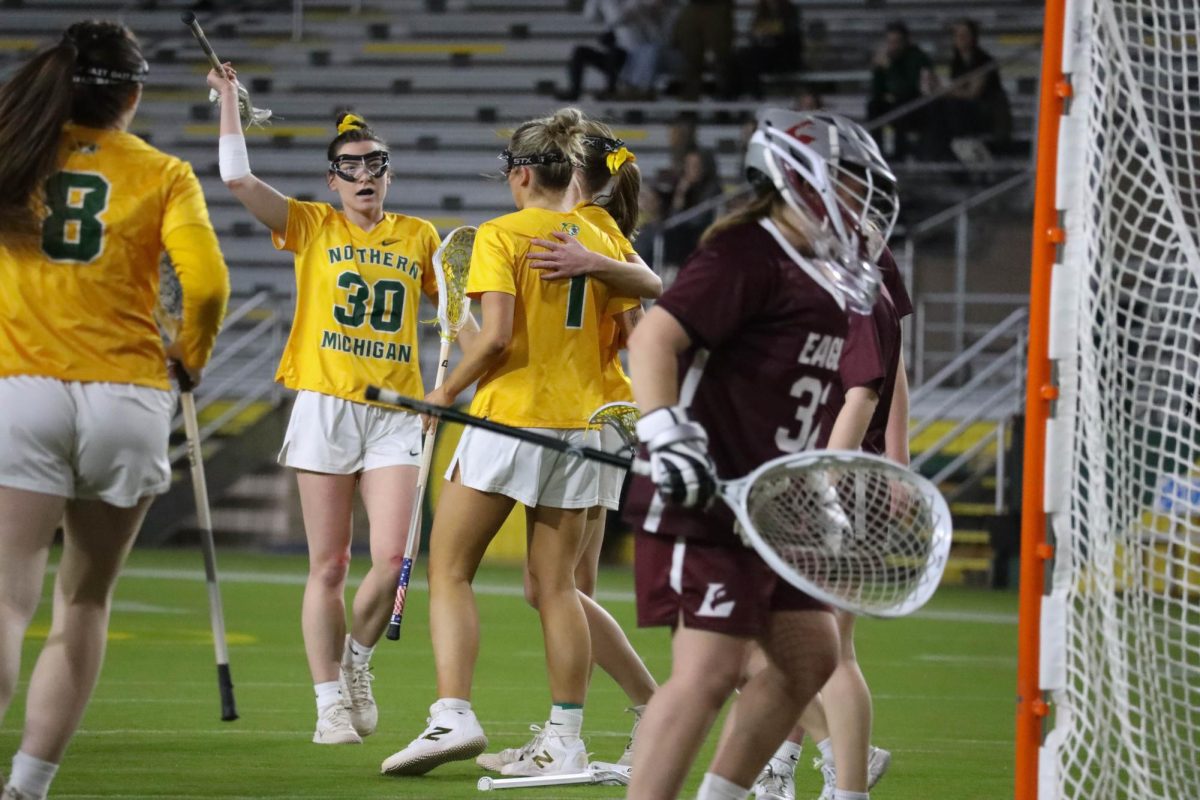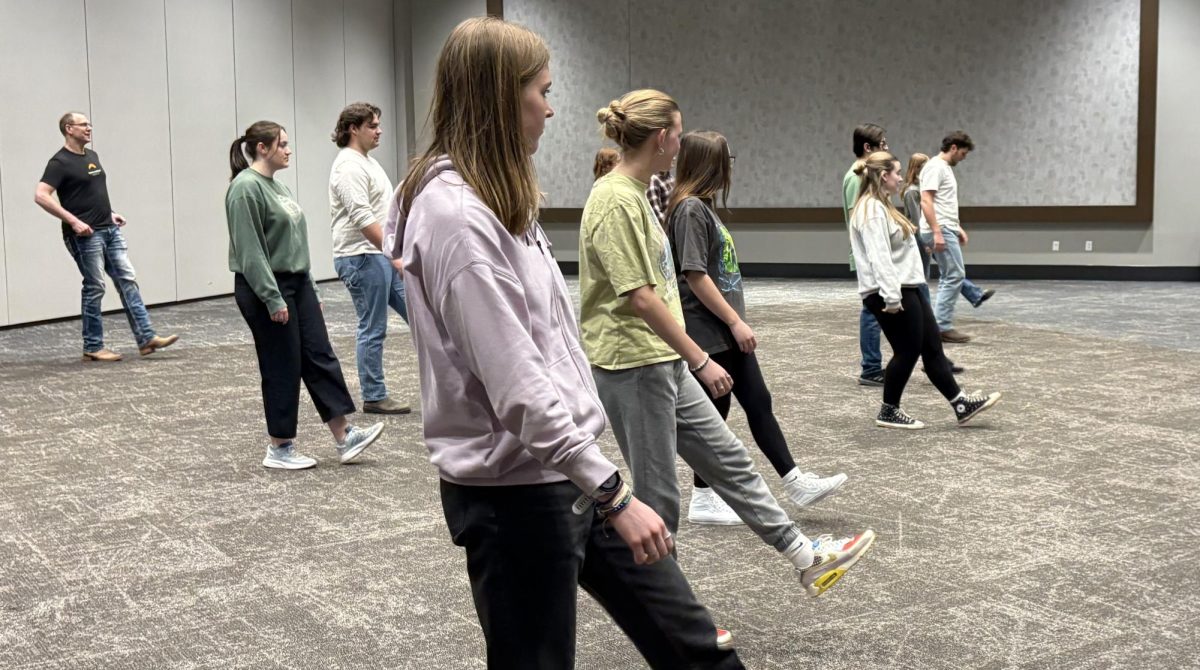In recent budget proposals, members of Congress have proposed cuts to the Corporation for Public Broadcasting (CPB), which aids in funding public media outlets such as National Public Radio (NPR) and the Public Broadcasting System (PBS).
If these budget cuts are signed into law, smaller rural affiliates like WNMU-TV and Public Radio 90, which are stationed in the lower level of the LRC on campus, stand to lose the most, said Eric Smith, the general manager of WNMU-TV and Public Radio 90.
Because viewership is more condensed in urban areas, larger affiliates are able to raise more money for programming and do not rely as much on federal dollars to function, he said.
“We broadcast to a lot more chipmunks and pinecones than a station in Detroit … and if you consider that five percent of the viewing public is going to (give donations), five percent of a million is a lot more than five percent of a hundred thousand,” Smith said.
Federal aid from the CPB is determined by the amount of money individual stations are able to raise on their own. WNMU-TV receives $673,000 from the CPB of their $1.4 million yearly budget. Public Radio 90 receives, on average, $150,000 of their $780,000 yearly budget.
These proposed budget cuts come amidst the resignation of NPR Fundraising chief Ron Schiller after stirring up controversy by referring to conservative political groups as racist on a hidden camera.
Though Smith admits that mistakes are made, public broadcasting is without bias on the whole, he said. Smaller affiliates like WNMU-TV provide services to the community, including up to six hours a day of educational programming that is frequently used to teach in schools, Smith said.
“At NPR in particular, we’ve had a couple of individuals that have made some bad decisions. People are reacting to a perceived liberal bias, but it’s just not there,” Smith said.
A common misconception about public radio stations is that they are controlled by organizations such as NPR, said Evelyn Massaro, station manager at Public Radio 90. NPR works as an
outlet for programming that is then purchased by independent radio stations, she said.
“NPR is just one of the sources for our programming. We choose to buy from NPR because that’s what our listeners want,” Massaro said.
Defunding public broadcasting will not eliminate popular NPR shows, she said. The real victims will be locally produced shows that are specific to each individual station, Massaro said, and the goal at Public Radio 90 is to cut back as much as possible without affecting the general listening experience.
“Everything’s on the cutting board now. We try to minimally impact what our listeners hear,” Massaro said.
Chaz Parks, a junior electronic journalism major, volunteers with Public Eye news, a student-run news program that airs on WNMU-TV. The opportunity to produce a news show is an invaluable experience for any student who wants to go into broadcasting, Parks said.
“If (PBS) gets cut, it will be a huge blow to the university. So many kids won’t get this experience,” he said.
Though Public Eye News is student run, the staff at WNMU is available to train students to use the equipment and help produce the show, Parks said.
“If you want to learn to do something, someone will show you how to do it,” he said.
Along with job experience, public broadcasting is beneficial because of the interesting programs that are available through non-commercialized television, he said.
“How many kids grew up watching Sesame Street on PBS? Cutting the funding to public broadcasting is a horrible thing,” Parks said.
































Dave Hase • Jul 19, 2011 at 3:04 pm
Get over it NPR. I listen sometimes and I do not pay for it because if I HAD TO pay to listen, I would never listen. I also do not like pan handlers whether they’re on the street or on my radio/TV. American taxpayers are getting so tired of money, our money, being spent on programs and crap that should get by on their own. If not, sink! No more swimming allowed!!
JRA • Mar 19, 2011 at 8:23 am
The North Wind should prioritize concerns. Is NPR a priority? Or are Pell Grants and other student aid? Which would you rather have as students? I’m not saying the issue is that black and white. However, there is a limited amount of tax payer dollars for confiscation and reallocation. There is no reason for NPR or PBS to exist as taxpayer subsidized entities any longer.
As a conservative, I find it easier to justify student tuition assistance instead of wasteful programs, like Public Broadcasting. The private sector will commercialize the intellectual property on these public stations that is worth saving. The rest, well – as someone else said… pony up a check or let it die.
Karomojo • Mar 18, 2011 at 10:43 am
There’s a really simple solution. All those people who claim that they love NPR should write a check right now. Few listeners actually contribute. Then NPR would not need any federal money. But, they want to listen and watch, and not pay.
Danny • Mar 17, 2011 at 11:11 am
So what? Robert Schiller of NPR, arrogantly stated in the interview that NPR did not need public funding as it already had plenty from other sources. It only gets about 1/6 of its money from the taxpayers which brings up the next question. Why should our tax dollars be used to support a NPR and any of its affiliates? It should not. Let them sink or swim in the marketplace. None of the other networks go begging for public tax payers money, so what makes NPR so special? Nearly everything they broadcast can be found on other networks. What cannot be found on other networks is not there for a reason – there is no demand for their eclectic programming. Does anyone really care about 15 year old reruns of Red Green, Garrison Keeler’s take on life in Minnesota, the flat earth eco show Living on Earth? If the local stations need money, let them raise the money through more aggressive fund raising or selling advertising. Enough of this milking the taxpayers for money.